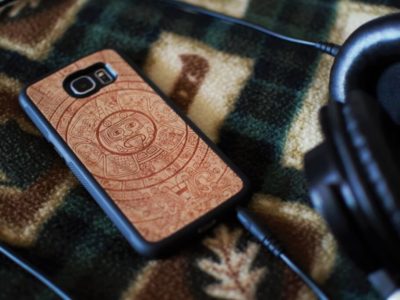My first day in middle school, I didn’t have any friends. I’d just moved to Washington state and left all my childhood friends behind in Southern California. I was desperate to make some new ones, ASAP.
On the bus, I sat alone. I noticed another kid who sat close by wearing baggy clothes, short dark hair and brown skin. He seemed familiar. When he spoke I recognized the Chicano accent I grew up around but that I never picked up myself. I was tall, lanky, quiet and pale enough to blend in with the white students who made up the majority of the student body.
My nerves prevented me from approaching him. But when I got off the bus and noticed my shoes were untied, I let out a word which poet Octavio Paz said that “by shouting it, we break a veil of modesty, of silence or of hypocrisy. We manifest ourselves as we really are.” A quintessentially Mexican expletive I knew he would recognize.
“Ah, ¡ch—-do!” I said under my breath but loud enough so he could hear. As I tied my shoe, I could see from the corner of my eye that the word had held him in place as if he were watching the veil of modesty fall from my face. Soon after, we were talking about our shared identity, about the tiring music our parents listened to on repeat and the things they said about the old country. We became fast friends.
It’s confusing to be raised in two cultures, even for those around us. White Mexican-Americans like myself need to establish themselves as Latinos before others recognize them for who they are. It’s a minor annoyance light-skinned Hispanic-Americans deal with constantly. The revelation is sometimes met with incredulous questions, like, “But aren’t you white?” or “Okay, but where are your parents from?” and “Wait, you speak Spanish?”
We don’t conform to people’s image of Latinos, so we need to explain every now and then that Hispanic and white (or Asian, Middle Eastern, African, etc.) aren’t mutually exclusive terms. But it’s natural not to second guess where the pasty pale guy with a Californian accent comes from. I get that some people don’t want to assume even if they realize I share a first name with Enrique Iglesias and Mexican President Enrique Peña Nieto.
I even hesitate to call myself completely white because I honestly don’t know if I am. But at a glance I look white enough, I think, to benefit from white privilege. When Cinco de Mayo rolls around and I go to a store, the well-meaning door greeter doesn’t tell me where I can find the tequila or jalapeños like a friend of mine experienced.
Honestly, I want it to be on display, too, sometimes, so people can know at a glance without another explanation. I want it to be known not just because it is half of who I am but also because as I think about moving out and starting a career in journalism—an industry dominated by whites—I’m afraid that I might leave my heritage behind at home like I’ve always done. Spanish, in my mind, acts as domestic language associated with rest, good food and family. English is the language I associate with school, strangers and my career. I don’t want to make those distinct associations anymore.
In middle school, I used to swear in Spanish like Sofia Vergara, repeat jokes from George Lopez, or tell a joke at the cost of my ancestors’ dignity just to communicate and express my ancestry. Admittedly it took a while before I realized how dumb that was, but I was a dumb 13-year-old.
Now I buy things in place of dark skin like a wooden phone case with the Aztec calendar carved on it even though I know next to nothing about Nahua culture. I bought a sweater that re-attributes reggaeton lyrics from a Calle 13 song to Thomas Edison. Whenever I read a book in Spanish, I put it down on my desk in class, hoping someone will comment. That actually worked once with a poetry collection by Pablo Neruda.
To be clear, I genuinely love all those things. What Latino who grew up watching El Chapulin Colorado doesn’t want a red t-shirt with the yellow heart-shaped shield printed on it? The thought that somehow these things will make me more recognizably Hispanic is peripheral.
But I can’t help but think of the college students across America who decide to don the stereotypical appearance of another culture for the benefit of a drunken frat party. In late 2013, Kappa Alpha fraternity at Randolph-Macon College held a USA vs. Mexico party in which attendees were told to come dressed as Border Patrol agents or illegal Mexicans. A drinking game had students chasing each other down in a mocking reenactment of the struggle thousands of people running from violence and poverty face crossing our border. More recently, in February, Bowdoin College held a Mexican-themed “tequila party” where some students wore sombreros.
I realize that the comparison isn’t perfect. I’m not dressing up like Pancho Villa, with a bushy mustache saying something like, “I don’t have to show you any stinking badges.” My offenses are much smaller and subtler and my intentions go beyond throwing a crazy kegger. But I can’t help think that I am using my ancestry to accessorize even though my intention is just to communicate my heritage.
I think I should instead practice clearer and more direct communication. I should bring my Mexican upbringing into my work and use my platform as a journalist, as small as it may be, to promote my heritage and the discussion of Latino issues, down to the personal inconveniences of white Latinos.
The Aztec calendar is more than a conversation starter.



















